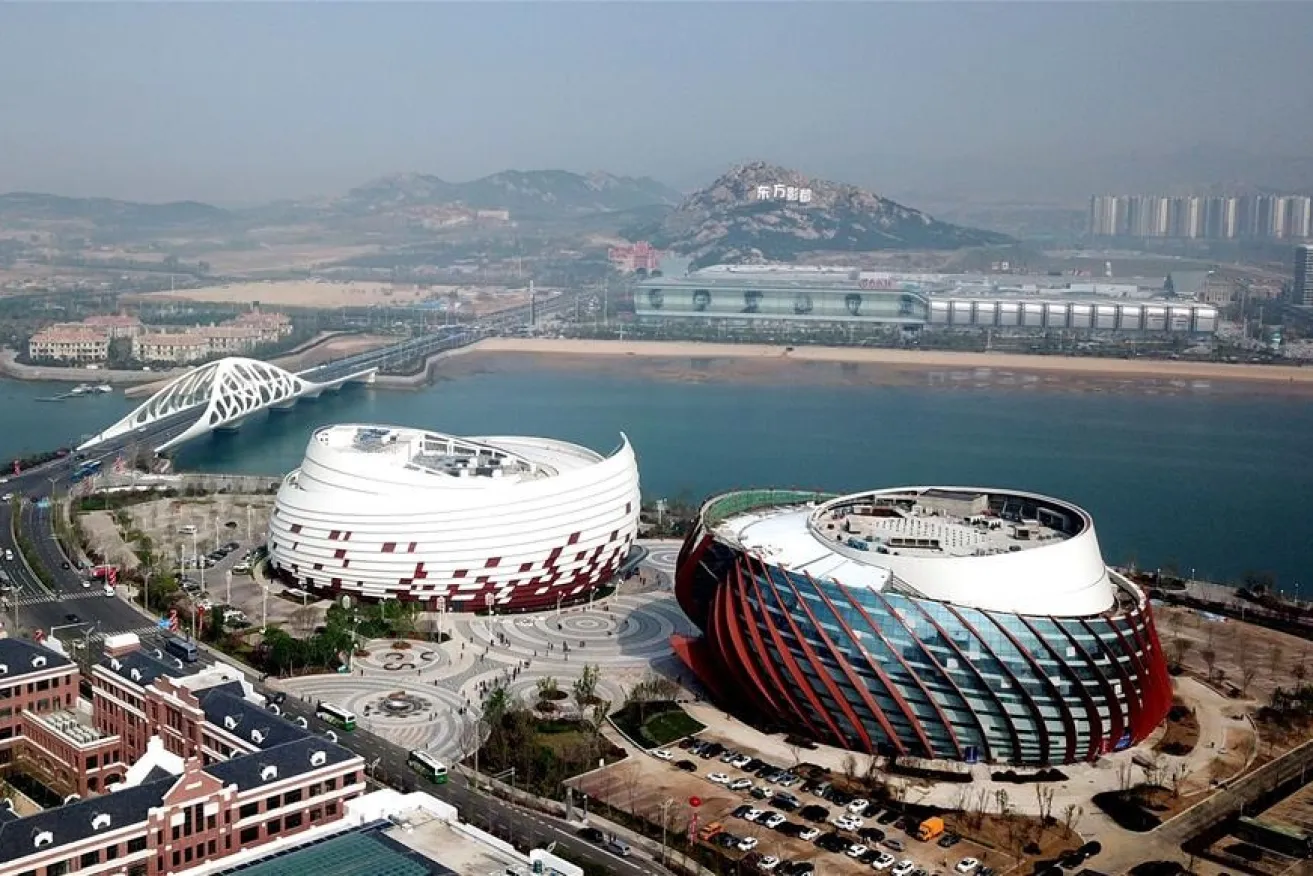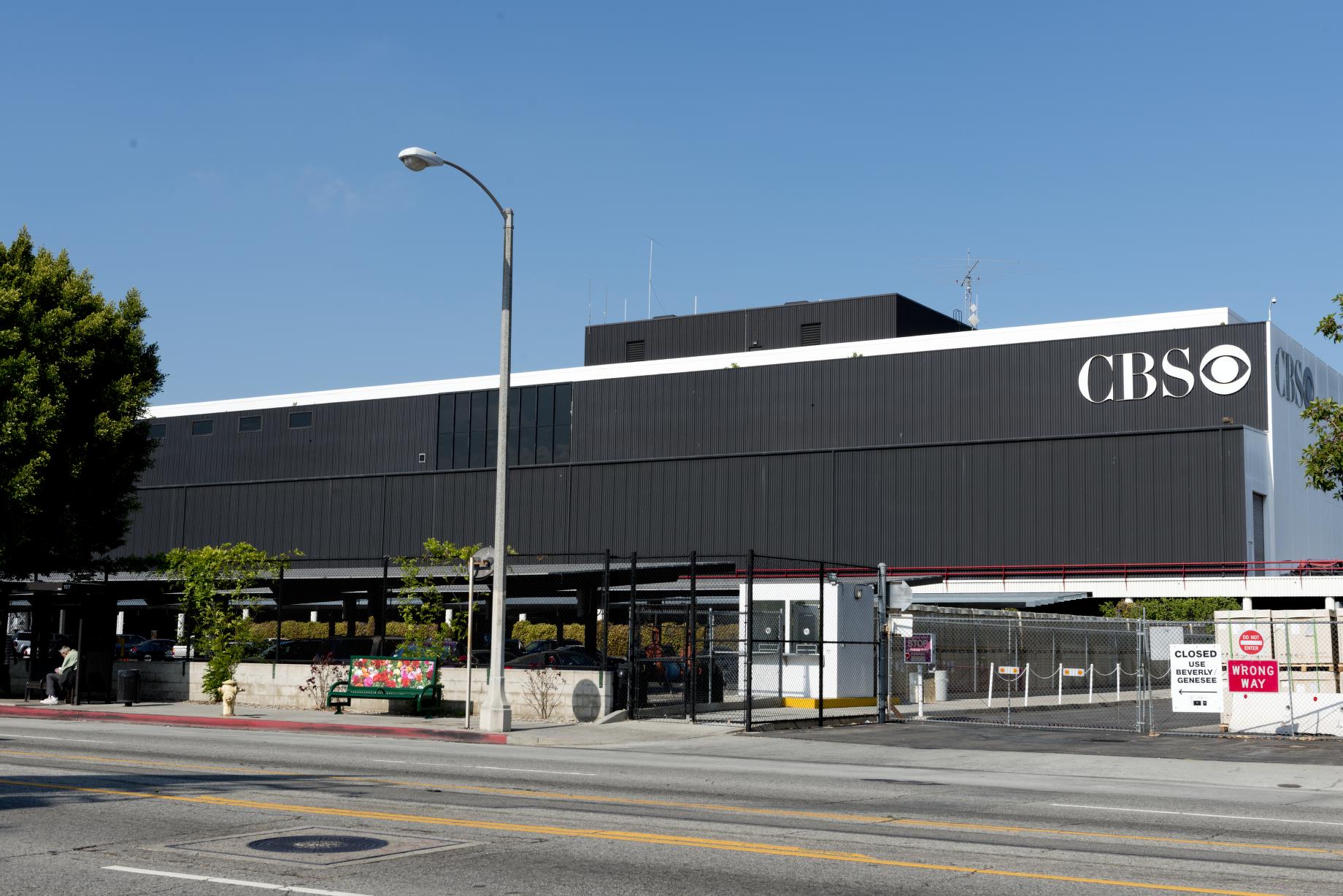China’s China Movie Metropolis (CMM) in Qingdao is positioning itself as a major player in the global film industry. The $8 billion facility, often referred to as “Hollywood in the East,” is doubling down on its ambitions to attract international productions, co-productions, and long-term partnerships. With its recently added soundstages and cutting-edge facilities, CMM is fast becoming a hub for some of the most ambitious film and TV projects in the world.
At a recent industry event in Adelaide, Australia, representatives from the Shandong Provincial Radio and Television Bureau made their case for why Shandong—home to CMM—is an emerging powerhouse in global entertainment. The event underscored how the province’s investment in advanced production infrastructure is opening the door to major international collaborations, positioning Shandong as a key destination for global filmmakers.
China Movie Metropolis: A World-Class Production Facility
Since its 2018 opening, China Movie Metropolis has transformed Qingdao into one of the most advanced and largest film production centers globally. Spanning 170 hectares, CMM now boasts 40 state-of-the-art soundstages, including two permanent underwater stages—the largest of their kind in Asia. The complex also features Asia’s biggest exterior water tank and a 20,000-square-meter post-production center, allowing filmmakers to take their projects from pre-production through post in one location.
These facilities have already hosted some of China’s biggest box office hits. Director Frant Gwo’s The Wandering Earth, which grossed nearly $1 billion, and its sequel, which raked in over $800 million, both utilized CMM’s cutting-edge stages and technology. As China continues to grow as the largest film market in the world—boasting an annual box office of $11 billion—CMM is looking beyond domestic productions to attract more international filmmakers, offering a platform that rivals the world’s best studios.
New Soundstages Driving International Production
One of the most significant developments at CMM is its rapid expansion of soundstage capacity. The 40 soundstages now available make CMM one of the largest and most advanced production complexes globally, but the key to its success lies in its flexibility and scale. These stages are equipped to handle everything from intimate indie dramas to major Hollywood blockbusters, making them attractive to both local and foreign productions.
A key feature is CMM’s two permanent underwater stages, which are increasingly being used for high-end productions that require specialized sets for water-based scenes. These facilities, paired with advanced bluescreen technology and motion capture capabilities, enable filmmakers to create complex, high-concept sequences—whether they’re shooting a sci-fi epic like The Wandering Earth or a historical drama.
The addition of new soundstages makes CMM one of the most versatile production hubs in the world, and it’s expected to play an increasingly significant role in international co-productions. “The scale and sophistication of CMM’s facilities are unmatched in Asia,” said Li Jianhua, Director of the Shandong Provincial Radio and Television Bureau, adding, “We’re ready to work with the world’s leading filmmakers and bring more international productions to China.”
A Gateway for International Co-Productions
With China’s domestic box office flourishing, the country is looking to leverage its success to build stronger ties with international markets. CMM’s world-class infrastructure, combined with competitive tax incentives and deep government support, makes Shandong an attractive destination for foreign filmmakers.
At the Adelaide event, Kate Croser, CEO of the South Australian Film Corporation (SAFC), spoke about the potential for deeper partnerships between Australia and Shandong. One successful example is Chef Exchange, a co-produced TV series filmed in both Adelaide and Qingdao. The show aired on Qingdao TV, and its success has spurred further interest in co-productions between the two regions.
With Li Jianhua emphasizing the importance of co-productions during the presentation, it’s clear that Shandong’s goal is to integrate more international voices into its burgeoning industry. “Film serves as a bridge for cultural exchange,” said Li. “We want to see more collaboration between Shandong and international markets on films, TV dramas, and documentaries. Our facilities are ready to support productions of all sizes.”
Advanced Technology Meets Traditional Chinese Landscapes
Beyond its impressive soundstages, China Movie Metropolis is also at the cutting edge of technology. The hub includes the 5G High-Tech Video Experimental Park, which provides filmmakers with access to groundbreaking innovations in 5G technology. These advancements are critical for modern productions that rely heavily on real-time data transfers, high-resolution streaming, and complex post-production workflows.
Shandong’s natural landscapes are another major draw for international productions. The province offers a diverse array of filming locations, from ancient temples and coastal cities to towering mountain ranges. Productions like the documentary Spring and Autumn, which explores the life of Confucius and was shot at CMM, have taken full advantage of these unique environments, blending modern technology with China’s rich history and culture.
What’s Next for China Movie Metropolis?
As China’s film industry continues to grow at an unprecedented rate, China Movie Metropolis is positioning itself as the go-to hub for international productions. The combination of advanced soundstages, cutting-edge technology, and the sheer scale of the facility makes CMM a unique player in the global market.
With plans to attract more international co-productions, and a growing list of high-profile films already under its belt, China Movie Metropolis is set to become a crucial link between Hollywood and the booming Chinese film market. “We invite filmmakers from around the world to experience what CMM has to offer,” said Li Jianhua, “and to explore the countless opportunities available in Shandong.”
For global producers and filmmakers, the message is clear: China Movie Metropolis is more than just a film hub—it’s the future of international filmmaking.
















